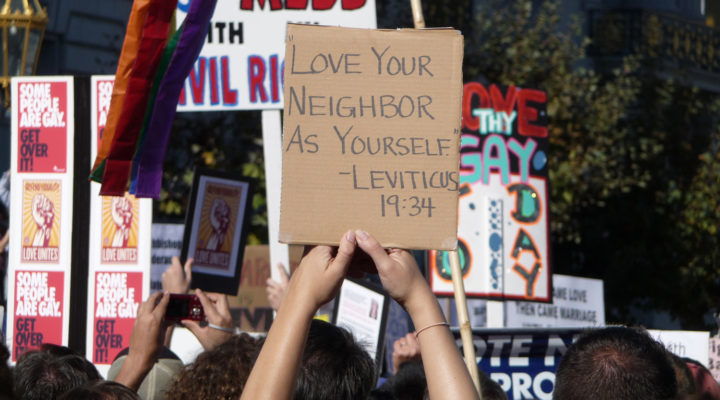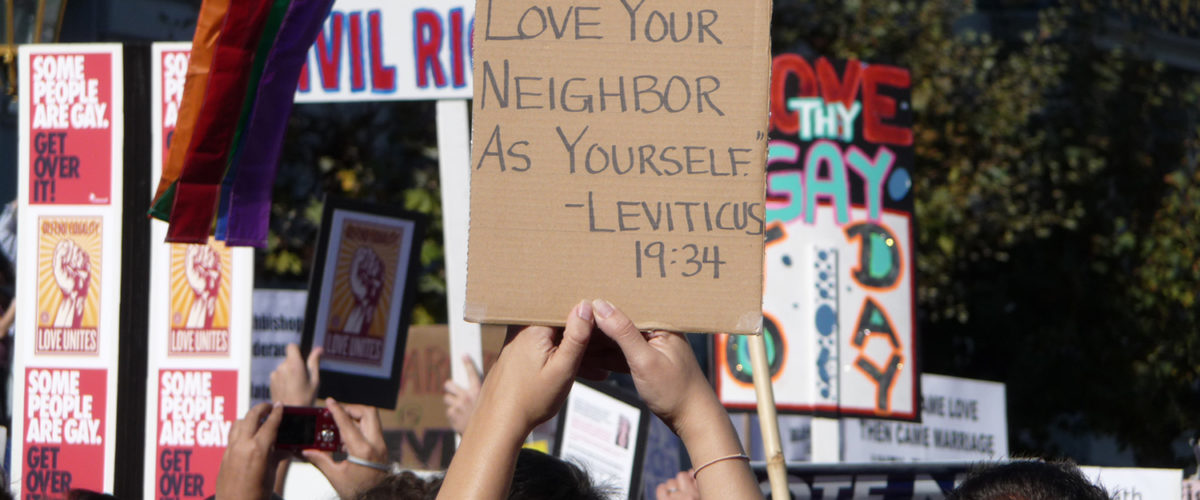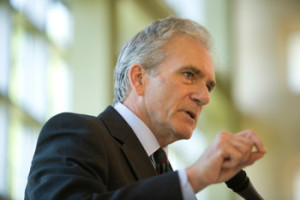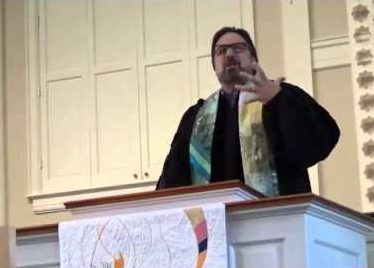The number of religious freedom bills across the United States may give the impression that using the law to protect faith is a purely conservative pursuit.
Well, it isn’t, says Brent Walker, executive director of the Baptist Joint Committee for Religious Liberty, based in Washington.
“Progressives and conservatives both care about religious liberty — particularly when it’s their own,” he said.
Still, it’s understandable why Americans may get the impression that Christian conservatives alone attempt, often successfully, to work the legal system to their political, social and religious benefit.
Earlier this year, Mississippi Gov. Phil Bryant signed a bill protecting faith-based organizations and businesses from liability when denying services to LGBTQ people.
North Carolina and Indiana have also passed controversial, high-profile measures.
Of nearly 200 bills proposed in state legislatures to discriminate against LGBTQ people, 100 invoke religious values as their motivation, CNN reported.
“Kansas passed a law this year allowing campus groups to restrict membership to students based on faith,” the news channel reported.
Legal and religion experts cite the legalization of gay marriage and other advances in LGBTQ rights as the driving force behind conservative efforts to boost the legal protection of their opposing beliefs.
Environmental concern as religious belief
But right-wing values and same-sex marriage aren’t the only faith-based perspectives currently inspiring legal actions. While they are generating less national news, progressives and moderates are taking on government, and sometimes their neighbors, in the name of religious freedom.
Among them is First Parish, a Unitarian Universalist congregation in Bedford, Mass.
Earlier this month, ThinkProgress reported that the 287-year-old church sued the town after being denied a certificate of appropriateness for solar panels it wanted to mount on the roof of its historic meetinghouse.
It argued that the denial is a violation of the congregation’s free exercise of religion as protected under the Massachusetts Declaration of Rights and the First Amendment of the U.S. Constitution.
The church’s complaint notes that Unitarian Universalist churches across the nation have taken steps to reduce their consumption of fossil fuels and are embracing other environmentally sustainable practices.
“First Parish … calls upon the faithful to engage in affirmative acts of environmental conservation” which “are essential to their religious practice,” the church said in its court filing.
First Parish’s action also comes under the Religious Land Use and Institutionalized Persons Act, a federal law aimed to protect individuals, houses of worship and other religious groups from zoning and other land use discriminations.
That church is not alone. In 2014, a group of North Carolina clergy claimed the state’s then-ban against same-sex marriage violated their religious freedom, and calling, to conduct weddings for LGBTQ people, ThinkProgress reported. They filed a challenge that was upheld.
Protecting the entire religious spectrum
Michael Usey said it all shows that progressives are awakening to the legal avenues — including the Religious Freedom Restoration Act — available to them to promote and protect their causes.
“There is a misunderstanding that separation [of church and state] means that congregations and groups can’t try to engage in public debate,” said Usey, pastor of College Park Baptist Church in Greensboro, N.C.
The congregation actively and vocally opposed North Carolina’s Amendment 1. Passed by voters in 2014, it tightened the state’s existing ban on marriage equality. It was struck down as unconstitutional later that year.
Usey said similar cases are springing up around the country. More churches need to speak up for justice.
“There was a guy in Florida arrested for feeding the homeless,” Usey said. “I do think it’s time to be prophetic about these things.”
And that doesn’t mean congregations must file lawsuits to live out their callings.
“If you can’t do anything about evil, at least go on the record opposing it,” Usey said. “There is a lot of that going on.”
There are plenty of existing, legitimate routes congregations and individuals take when they feel their religious rights are being compromised by government and other organizations, Walker said.
They include the RLUIPA defense being used by the Unitarian Universalist church in Massachusetts, and the RFRA defense.
The BJC has supported religious liberty cases involving the religious beliefs and practices of prison inmates and retail employees — including the Muslim woman denied employment because she wears an hijab, he said.
“Religious liberty is not and should not be a partisan concern,” Walker said. “It ought to be applied to both sides of the spectrum.”




